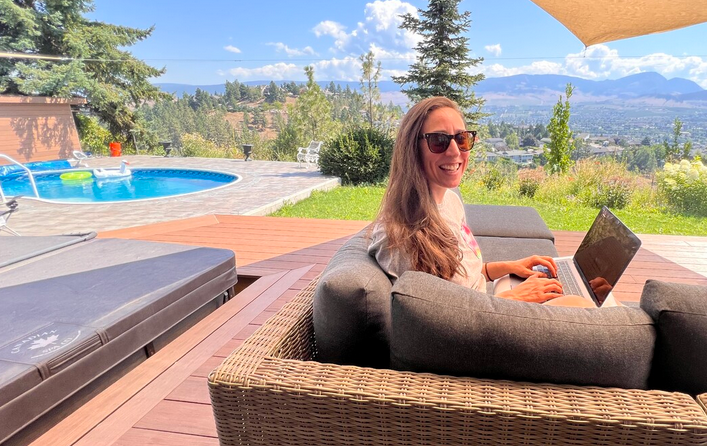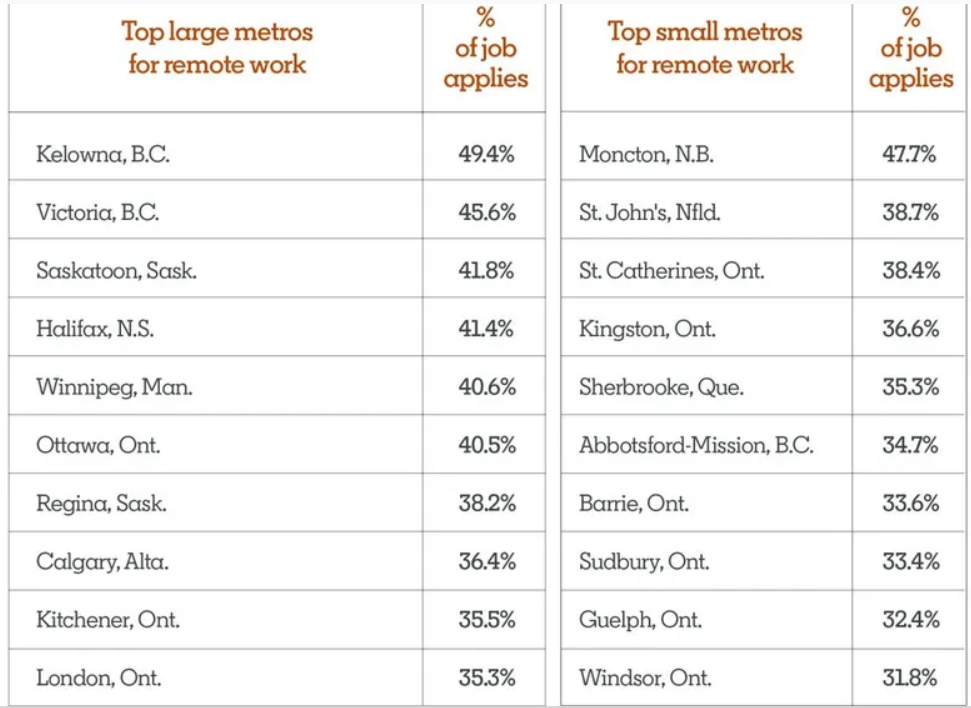 By Pepper Parr
By Pepper Parr
August 7th, 2023
BURLINGTON, ON
Where have all the workers gone?
Covid19 meant huge changes in where people worked – the office moved to the kitchen table and teachers did their best to keep a class interested while everyone dealt with a virus that was killing millions.
Remote work was necessary during the harder days with lock downs in place.
Burlington chose to become a hybrid city with some staff able to choose to work from home full time – going into the office only when it was necessary.

City manager Tim Commisso liked the idea
City manager Tim Commisso liked the idea and directed the Executive Director level to organize the jobs that had to be done into various forms of hybrid work. Neither Commisso or the city’s Communications department every released numbers
“People thought remote work would last forever, and the importance people put on work-life balance reached new heights … people were putting their personal lives first and moving to beautiful locations,” said Travis O’Rourke, president at Hays Canada.
The number of fully remote jobs has decreased as a number of employers have called time on work-from-anywhere policies. The volume of applications for remote jobs has also increased, he said, putting them high in demand for those who have relocated to these locales.

Jessica Weisz optimized for sunshine. “We came and saw the place that we could rent … You could see the mountains and the lake, it had a pool and it was massive and it was the same as rent for our little small loft in Toronto.”
Jessica Weisz, who works in tech entrepreneurship and venture capital, stopped working in-person in Toronto during the pandemic and moved to Niagara, Ontario, and then Kelowna, B.C., where she has continued working remotely for her employer.
For Weisz, returning to an in-office position holds little appeal. “I like being able to be home and focus and not have to go into the office,” she said, adding that the flexibility helps her be a more involved parent.
“What we were optimizing for was sunshine. I had never been to Kelowna – I knew nothing about it,” she said. “We came and saw the place that we could rent … You could see the mountains and the lake, it had a pool and it was massive and it was the same as rent for our little small loft in Toronto.”
“People thought remote work would last forever, and the importance people put on work-life balance reached new heights … people were putting their personal lives first and moving to beautiful locations,” said Travis O’Rourke, president at Hays Canada.
Since then, the number of fully remote jobs has decreased as a number of employers have called time on work-from-anywhere policies. The volume of applications for remote jobs has also increased, he said, putting them high in demand for those who have relocated to these locales.
Research suggests that, like Weisz, most employees who got a taste of remote work are eager to continue. Nearly four in five Canadians said they much prefer it to working in the office, according to a report by the Future Skills Centre.
The impact of remote work on the office space sector of the real estate business is severe. Some office building operators are looking at ways to convert the space in residential.
Others are finding that productivity isn’t quite the same but those people aren’t certain and think it might be too early to tell what the final outcome is going to be.



















